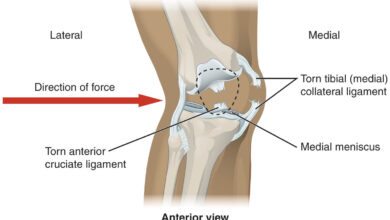The Silent Killer: Why Pancreatic Cancer Often Goes Undetected

Introduction
Infamously known as the “Silent Killer,” pancreatic cancer is one of the cancers causing the highest number of cancer deaths globally. Its tendency to develop and grow without causing any symptoms makes its timely detection and treatment challenging.
So, is early detection of pancreatic cancer possible? What symptoms to look out for? Is there a screening test available for pancreatic cancer?
Read this article to learn the answers to these burning questions.
Why Pancreatic Cancer Goes Undetected Until the Advanced Stages?
Early detection of pancreatic cancer becomes challenging for various reasons:
- Location of the Pancreas: The pancreas is a deep-seated organ. It is situated right below the liver, in between the stomach and the spleen. It is for this reason that pancreatic tumors cannot be felt during a physical examination before there are apparent symptoms.
- Lack of Symptoms in the Early Stages: Pancreatic cancer does not cause any symptoms in the early stages. The symptoms are often only seen after the disease has spread outside the organ.
- Vague Symptoms: Pancreatic cancer symptoms that do appear are often vague and overlap with the symptoms of many non-cancerous conditions, making an accurate diagnosis challenging.
- Lack of Effective Screening Tests: There are no standard screening protocols available for pancreatic cancer. Reports suggest that there are no screening tests that can reduce one’s risk of succumbing to this disease after being diagnosed.
- Quicker Disease Progression: Pancreatic cancer is an aggressive and fast-growing type of cancer that progresses in the span of a few months, and this also makes its timely detection challenging.
Pancreatic Cancer Symptoms to Keep an Eye On
While it is established that pancreatic cancer does not cause any early symptoms, some studies have reported a new onset of diabetes after the age of 50, high blood sugar levels, and unintended weight loss can be the earliest symptoms, and paying attention to these symptoms can help one catch pancreatic cancer at least 3 years earlier.
That said, the following are the commonly observed symptoms in pancreatic patients:
- Jaundice
- Abdominal pain
- Loss of appetite
- Nausea and Vomiting
- Fatigue
- Diarrhea
- Blood Clotting
- Back pain
It is important to note that these symptoms can be caused by various other digestive conditions, and the only way to arrive at a confirmed diagnosis is to consult a specialist for a detailed evaluation.
Can I Undergo Screening for Pancreatic Cancer?
There are no standard screening protocols available for pancreatic cancer. However, those falling under the high-risk category through certain lifestyle risk factors, family history of pancreatic cancer, certain genetic conditions, and other factors should talk to their doctor for appropriate screening guidance.
For high-risk individuals, MRI scans and endoscopic ultrasonography may be recommended as screening tests.
Bottom Note
There are ongoing studies to look for better diagnostic and treatment approaches for pancreatic cancer. One needs to pay attention to subtle symptoms of pancreatic cancer and see a doctor when these symptoms last for more than two weeks. This is crucial for the effective management of pancreatic cancer.




